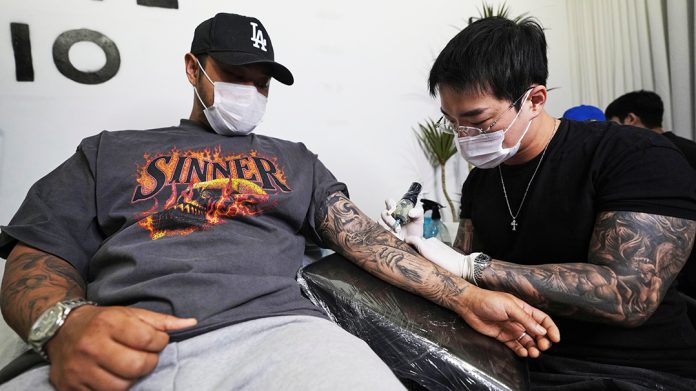South Korea has legalised tattoo artistry by non-medical professionals for the first time in more than 30 years, following a campaign by members of the profession to work without fear of prosecution or harassment.
Though tattoos are commonplace in the east Asian nation, offering them has been limited to medical professionals following a 1992 Supreme Court ruling.
But, after the passing of the Tattooist Act by the General Assembly on Thursday, non-medical professionals – who compose most of the industry – will be able to obtain a licence.
Lim Bo-ran, president of the Korea Tattoo Federation, cried at the law’s passing, saying: “I can’t speak because it feels like a dream. I am truly grateful.”
Between 1992 and now, anyone offering tattoos without medical credentials faced up to five years in prison or a fine of up to 50 million Korean won ($35,000; £28,000).
There are no official statistics on how many tattooists have been prosecuted, but South Korea’s Tattoo Union says it gives legal support to at least 50 each year, and believes there are many more that result in fines.
As of 2021, there were an estimated 350,000 tattoo artists in the country, according to the Ministry of Health and Welfare – most of whom specialised in semi-permanent make-up for lips, eyebrows or hairlines.
But relatively few of these have medical qualifications. Instead, most come from art or beauty backgrounds like elsewhere in the world.
By technically engaging in an illegal practise, tattoo artists in South Korea have been subjected to threats or reported by disgruntled clients.
Credit: bbc.com









